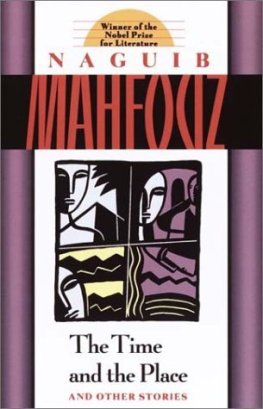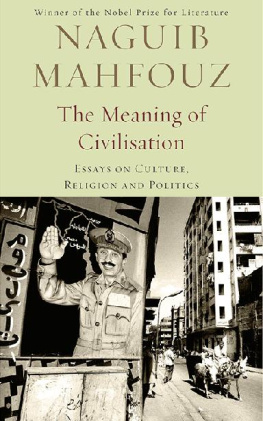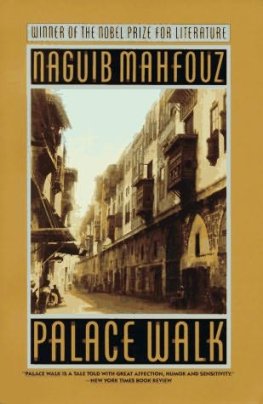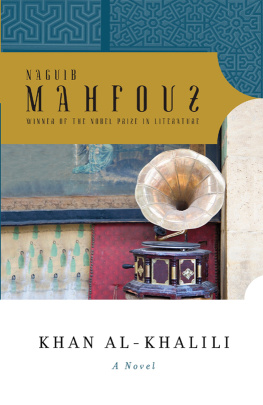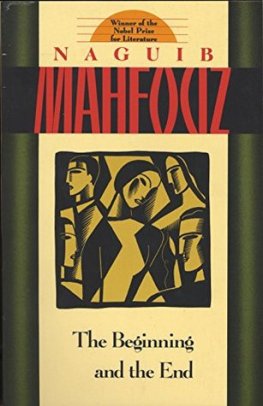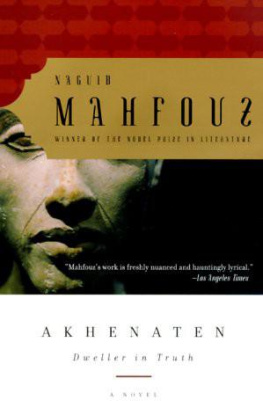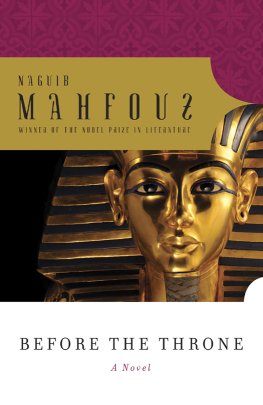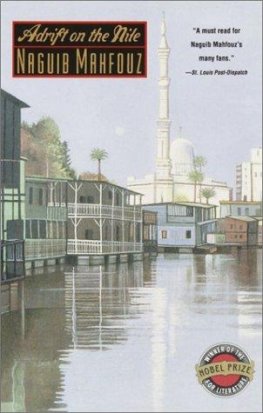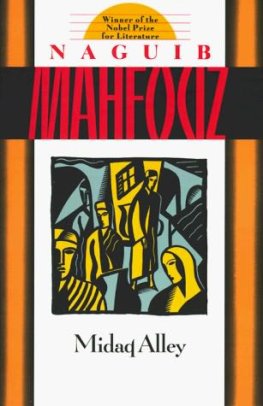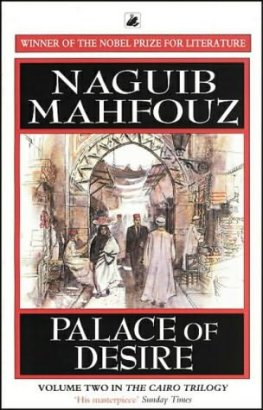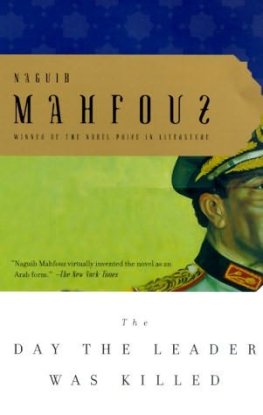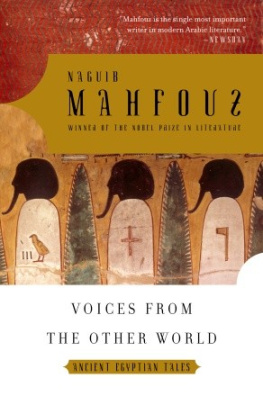Naguib Mahfouz - The Quarter
Here you can read online Naguib Mahfouz - The Quarter full text of the book (entire story) in english for free. Download pdf and epub, get meaning, cover and reviews about this ebook. year: 2019, publisher: Saqi Books, genre: Art. Description of the work, (preface) as well as reviews are available. Best literature library LitArk.com created for fans of good reading and offers a wide selection of genres:
Romance novel
Science fiction
Adventure
Detective
Science
History
Home and family
Prose
Art
Politics
Computer
Non-fiction
Religion
Business
Children
Humor
Choose a favorite category and find really read worthwhile books. Enjoy immersion in the world of imagination, feel the emotions of the characters or learn something new for yourself, make an fascinating discovery.

- Book:The Quarter
- Author:
- Publisher:Saqi Books
- Genre:
- Year:2019
- Rating:5 / 5
- Favourites:Add to favourites
- Your mark:
- 100
- 1
- 2
- 3
- 4
- 5
The Quarter: summary, description and annotation
We offer to read an annotation, description, summary or preface (depends on what the author of the book "The Quarter" wrote himself). If you haven't found the necessary information about the book — write in the comments, we will try to find it.
The Quarter — read online for free the complete book (whole text) full work
Below is the text of the book, divided by pages. System saving the place of the last page read, allows you to conveniently read the book "The Quarter" online for free, without having to search again every time where you left off. Put a bookmark, and you can go to the page where you finished reading at any time.
Font size:
Interval:
Bookmark:
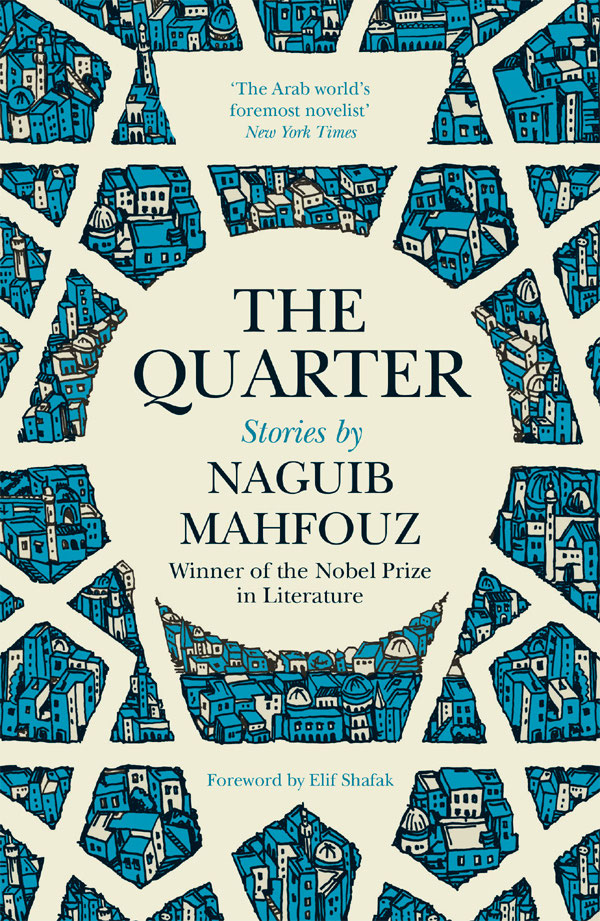
THE QUARTER
Naguib Mahfouz (19112006) was Egypts most eminent writer. Over a career that lasted more than five decades, he wrote thirty-four novels, thirteen short story anthologies, numerous plays and thirty screenplays. His works range from re-imaginings of ancient myths to subtle commentaries on contemporary Egyptian politics and culture. A writer of incredible discipline, every day he wrote for one hour, smoked three cigarettes and walked by the Nile. In 1994, he was stabbed in the neck by religious extremists and was seriously wounded. The injury caused nerve damage that partly paralysed his right hand, preventing him from writing. Of his many novels, his most famous in English translation is The Cairo Trilogy, consisting of Palace Walk, Palace of Desire and Sugar Street. Other notable works include Children of the Alley, The Thief and The Dogs and Autumn Quail. Naguib Mahfouz received the Nobel Prize in Literature in 1988, the first writer in Arabic to do so.
Praise for Naguib Mahfouz
The Arab worlds foremost novelist Arabic has a rich tradition in poetry, but the novel was not a strong art form until Mahfouz made it accessible. New York Times
[Mahfouz] populated his works with a cast of memorably strong urban characters. The result was a body of work that bore comparison with Balzac and Dickens. Mahfouz introduced his audience to a new way of seeing. The Economist
The world of Naguib Mahfouz is vast and extremely rich. He spans the various changes in the reality, dreams and aspirations of his nation. Although his world is mainly Cairo and the old quarter of Gamaliya in which he spent his childhood, he made the urban scene an elaborate and highly significant metaphor of the national condition. Independent
Egypts greatest living writer one of the worlds most humane literary figures. Like Zola, Mahfouz chronicled the lives of the most ordinary of his countrymen ... Like Dostoyevsky, he set most of his novels in one beloved city Cairo, in his case. Like his elders Taha Husayn and Tawfiq al-Hakim, he took on the role of national storyteller. The Nation
Mahfouzs work is freshly nuanced and hauntingly lyrical. The Nobel Prize acknowledges the universal significance of [his] fiction. Los Angeles Times
Mahfouzs scope is vast and his concerns are not only still evident today, but crucial. The Scotsman
Praise for The Cairo Trilogy
Luminous All the magic, mystery and suffering of Egypt in the 1920s are conveyed on a human scale. New York Times Book Review
It is Mahfouzs wonderful ability to delineate human beings from their outer appearances which gives Palace Walk its universal appeal. I shall read it again and again. The Guardian
A masterpiece. The Times
Teeming with life and contention ... it promises riches. Independent
Naguib Mahfouzs Cairo Trilogy puts all contemporary writers in the shade. He is the Arab Tolstoy. Simon Sebag Montefiore
The alleys, the houses, the palaces and mosques and the people who live among them are evoked as vividly as the streets of London were conjured up by Dickens. Newsweek
An engrossing work, whose author can take his place alongside any European master you care to name Sunday Times
A magnificent, Tolstoyan saga ... unmissable. Cosmopolitan
The Cairo Trilogy extends our knowledge of life; it also confirms it. Boston Globe
A grand novel of ideas a marvellous read. Washington Post
Sugar Street is a marvellous novel, with many messages, open and concealed, for those who will be instructed. TLS
A masterful kaleidoscope of emotions, ideas and perspective. Newsday
Mahfouzs genius is not just that he shows us Egyptian colonial society in all its complexity; it is that he makes us look through the vision of his vivid characters and see people and ideas that no longer seem alien. Philadelphia Inquirer
ALSO BY NAGUIB MAHFOUZ
Palace Walk
Palace of Desire
Sugar Street
The Harafish
Midaq Alley
Autumn Quail
Gods World
The Search
Love in the Rain
Heart of the Night
Children of the Alley
The Thief and the Dogs
The Beginning and the End
Miramar
The Beggar
Naguib Mahfouz
THE QUARTER
Translated from Arabic by Roger Allen
SAQI
Saqi Books
26 Westbourne Grove
London W2 5RH
www.saqibooks.com
Published 2019 by Saqi Books
First published in Arabic by Dar al Saqi in 2018
Copyright The Estate of Naguib Mahfouz 2019
Translation Roger Allen 2019
Foreword Elif Shafak 2019
The Estate of Naguib Mahfouz has asserted their right under the Copyright, Designs and Patents Act, 1988, to identify Naguib Mahfouz as the author of this work.
Nobel Prize Acceptance Speech The Nobel Foundation 1988 Translated by Mohammed Salmawy
This book is sold subject to the condition that it shall not, by way of trade or otherwise, be lent, resold, hired out, or otherwise circulated without the publishers prior consent in any form of binding or cover other than that in which it is published and without a similar condition including this condition being imposed on the subsequent purchaser.
Printed and bound by Clays Ltd, Elcograf S.p.A
A full cip record for this book is available from the British Library
ISBN 978 0 86356 375 1
eISBN 978 0 86356 385 0
I first read the works of Naguib Mahfouz in Istanbul in Turkish. Back then, as a university student, I used to frequent a second-hand bookshop a low-ceilinged, musty-smelling place with plank floors, just a stones throw from the Grand Bazaar.
The owner of the bookshop a sour-tempered, middle-aged man with thick glasses and a haircut that had never been popular in any era genuinely loved books and equally disliked human beings. At times he would randomly pick a customer and quiz him or her on their knowledge of literature, history, science or philosophy. I had seen him scold people before, and though I had never witnessed it myself, urban legend held that he refused to sell books to customers who failed his tests. No doubt there were many other bookshops in the city where you didnt have to inhale dust or risk bumping your head on the door frames, and where you could choose books without being grilled by the owner. Yet I kept returning to this place. Getting the booksellers seal of approval felt like a rite of passage, an unspoken challenge. Young and vain as I was, I secretly wanted him to question me on French, English or Russian novels in translation, which I believed were my strong point. But on this rainy day in late autumn, he looked at me and asked, So, have you read Mahfouz?
I froze. I had no idea who he was talking about. Slowly, I shook my head.
The bookseller said nothing, though his disappointment was visible. When I finished perusing and walked to the till, ready to pay for the books I had selected, he turned towards me with a frown. For a moment I feared he was going to kick me out of the shop. Instead, he grabbed a book from the shelf behind him and pushed it into my hands. Then he said, loud and clear: Read him!
The book that the grumpy bookseller in Istanbul sold me on that day was Midaq Alley. For a while, I postponed reading it. Then, about two months later, I started the book, not knowing what to expect. Inside, I found a rich world that was at once familiar and magical, well-founded and elusive. The stories of the people of the alley families, street vendors, poets, matchmakers, barbers, beggars and others were so deftly told that I felt as though I knew them, each as the individuals they are. Istanbul, too, was full of such streets and neighbourhoods unable to keep up with the bewildering changes surrounding them, and it remained both isolated and central, both inside the city and on its periphery. By delving into this world with a sharp mind and compassionate heart, Mahfouz had shown me the extraordinary within the ordinary, the invisible within the visible, and the many layers underneath the surface. His writing, just like Cairo itself, pulsed with life and a quiet strength.
Font size:
Interval:
Bookmark:
Similar books «The Quarter»
Look at similar books to The Quarter. We have selected literature similar in name and meaning in the hope of providing readers with more options to find new, interesting, not yet read works.
Discussion, reviews of the book The Quarter and just readers' own opinions. Leave your comments, write what you think about the work, its meaning or the main characters. Specify what exactly you liked and what you didn't like, and why you think so.

